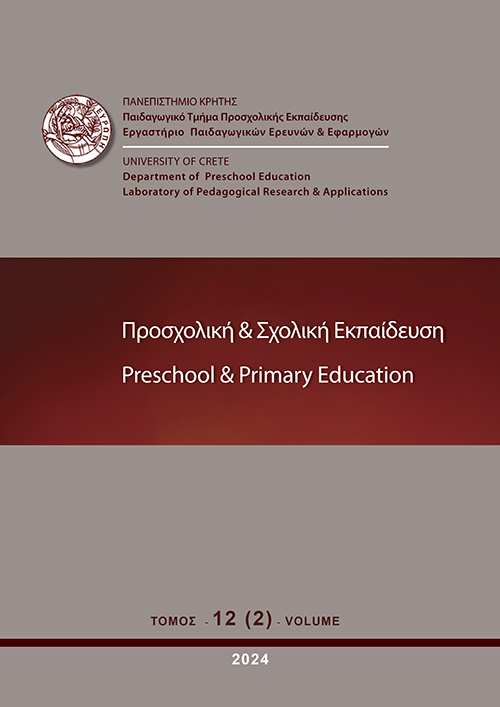Exploring the relationship between young children’s self-concept and prosocial behaviour in the Greek Early Childhood Education and Care setting: A study on soft skills assessment

Abstract
The aim of this study was to investigate young children’s perspectives of their self-concept and to examine its association with their prosocial behaviour. The psychometric properties of the Adaptive Social Behaviour Inventory (ASBI) in the Greek Early Childhood Education and Care (ECEC) context were also investigated. The study guided by the Social-Emotional Learning Framework that highlights the importance of the development of the soft skills in early years. The sample comprised 102 young children (Mage= 3.79 years, SDage= .20 years) and their teachers from nine ECEC settings. The measures used were the Adaptive Social Behaviour Inventory (ASBI) and the Pictorial Scale of Perceived Competence and Social Acceptance (PSPCSA). Results from factor analysis supported the four-factor structure of the ASBI and its high reliability: prosocial behaviour, co-operation/conformity, antisocial behaviour, and confidence. Findings showed that young children’s self-concept beliefs associated positively with the children’s prosocial behaviour. Collectively, the findings highlight the importance of supporting young children’s self-concept beliefs and their impact on children’s behaviour.
Article Details
- How to Cite
-
Vatou, A., Vatou, A., & Tsitiridou-Evangelou, M. (2024). Exploring the relationship between young children’s self-concept and prosocial behaviour in the Greek Early Childhood Education and Care setting: A study on soft skills assessment. Preschool and Primary Education, 12(2), 133–148. https://doi.org/10.12681/ppej.37269
- Section
- Articles

This work is licensed under a Creative Commons Attribution-NonCommercial-ShareAlike 4.0 International License.
Authors who publish with this journal agree to the following terms:
- Authors retain copyright and grant the journal right of first publication with the work simultaneously licensed under a Creative Commons Attribution Non-Commercial License that allows others to share the work with an acknowledgement of the work's authorship and initial publication in this journal.
- Authors are able to enter into separate, additional contractual arrangements for the non-exclusive distribution of the journal's published version of the work (e.g. post it to an institutional repository or publish it in a book), with an acknowledgement of its initial publication in this journal.
- Authors are permitted and encouraged to post their work online (preferably in institutional repositories or on their website) prior to and during the submission process, as it can lead to productive exchanges, as well as earlier and greater citation of published work (See The Effect of Open Access).


